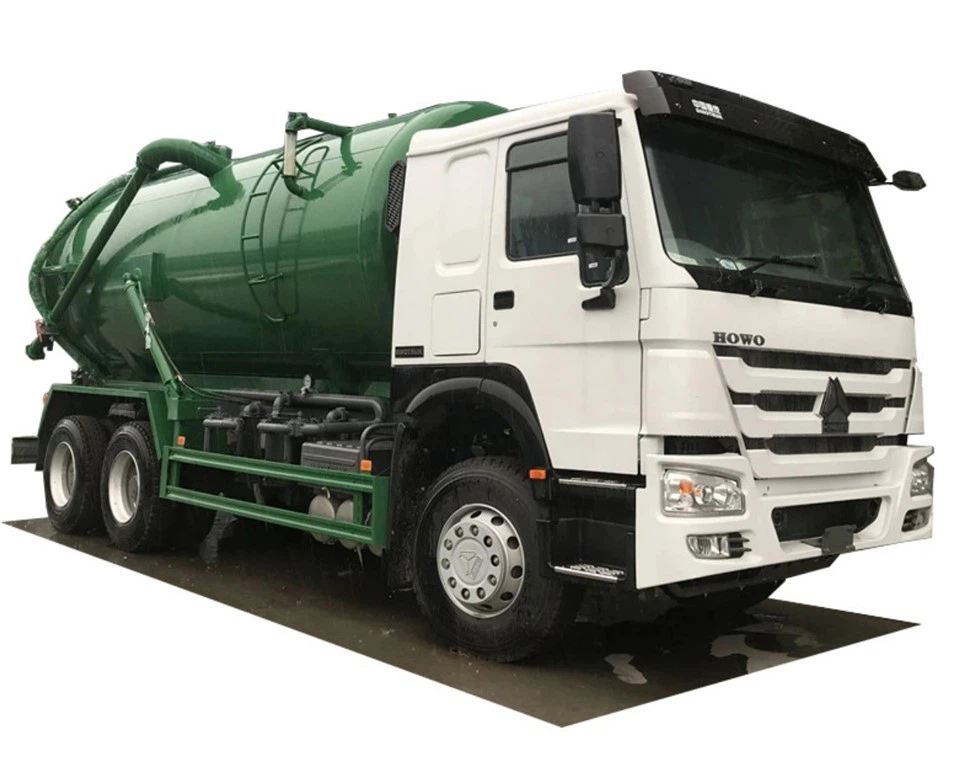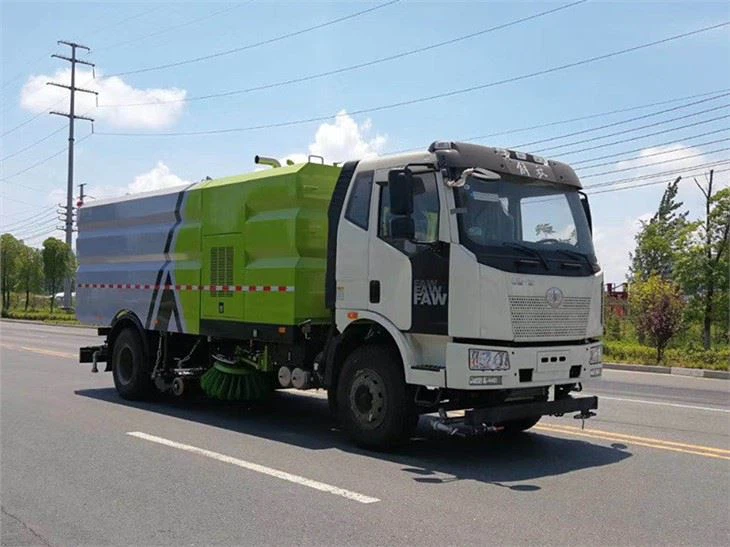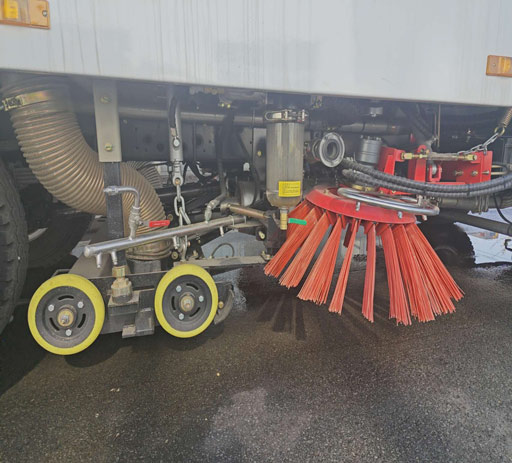Sewer Jetter Truck: An In-Depth Guide to Understanding, Operating, and Maintaining

Introduction
Sewer jetter trucks play a critical role in maintaining the infrastructure of modern cities. These specialized vehicles are designed to clear blockages in sewer lines, ensuring the smooth flow of wastewater and preventing backflows that can lead to environmental hazards and costly repairs. In this comprehensive guide, we will explore the various aspects of sewer jetter trucks, including their operation, benefits, maintenance, and more. Whether you’re a contractor, a municipal worker, or just an interested individual, this article provides valuable insights into the world of sewer jetter trucks.
What is a Sewer Jetter Truck?
A sewer jetter truck is a mobile unit designed to clean and maintain sewer systems using high-pressure water jets. These trucks typically feature a large water tank, a high-pressure pump, and a specialized hose that can reach deep into sewer lines. This method of cleaning is effective in removing stubborn blockages and can also help in the preventive maintenance of sewer systems.
Components of a Sewer Jetter Truck
A sewer jetter truck consists of several essential components:

- Water Tank: Stores the clean water needed for jetting.
- High-Pressure Pump: Generates the pressure required to blast away debris.
- Hoses: Flexible tubing that delivers the high-pressure water to the blockage.
- Nozzles: Various types can be used depending on the cleaning application.
- Control System: Allows the operator to manage water flow and pressure.
Types of Sewer Jetter Trucks
While sewer jetter trucks serve a similar purpose, they come in various types based on specific needs:
- Compact Sewer Jetter Trucks: Ideal for urban areas with narrow streets.
- Heavy-Duty Sewer Jetter Trucks: Designed for larger jobs in rural areas.
- Combination Trucks: Feature both jetting and vacuum capabilities for comprehensive maintenance.
How Does a Sewer Jetter Work?
The operation of a sewer jetter truck is relatively straightforward. Here’s how it typically works:
- The truck arrives on-site and sets up near the access point of the sewer line.
- The operator connects the high-pressure hose to the sewer line and selects the appropriate nozzle.
- Once everything is in place, the operator initiates the water flow, creating high-pressure jets that dislodge debris.
- The freed debris is then washed away, making the sewer line clear for optimal flow.
Benefits of Using a Sewer Jetter Truck
Sewer jetters offer numerous benefits for sewer maintenance:
Effective Cleaning
The high-pressure water jets can easily remove grease, tree roots, dirt, and other debris that traditional methods may struggle with.
Environmentally Friendly

Using water for cleaning minimizes the need for harsh chemicals, making it a more sustainable choice.
Cost Efficiency
Regular maintenance using sewer jetters can prevent more costly repairs down the line by avoiding exacerbated blockages.
Versatility
Sewer jetters can be used in various situations, including residential, commercial, and industrial applications.
Best Practices for Operating a Sewer Jetter Truck
Operating a sewer jetter truck requires training and awareness. Here are some best practices to follow:
Safety Precautions
Always wear appropriate safety gear, including gloves and goggles. Also, ensure that the area is safe before starting the operation.
Routine Checks
Conduct regular inspections of the truck, focusing on the water tank, pump, hoses, and nozzles to ensure everything is in working condition.
Water Quality
Ensure that only clean water is used. Contaminated water can cause additional problems in the sewer system.
Training and Certification
Operators should receive proper training and certifications to handle equipment safely and efficiently.
Maintenance of Sewer Jetter Trucks
Proper maintenance is crucial to keep sewer jetter trucks functioning optimally. Here are key maintenance tips:
Daily Inspections
Before beginning work, operators should check the truck’s fluid levels, hoses for leaks, and the functionality of the pump.
Regular Cleaning
After use, clean the hoses and nozzles of any debris to prevent blockages during the next operation.
Scheduled Service
Follow the manufacturer’s guidelines for routine service, including pump maintenance and engine checks.

Keep Spare Parts Handy
Having spare pumps, hoses, and nozzles on hand can save time during emergency repairs.
Costs Associated with Sewer Jetter Truck Operation
The total costs involved in operating a sewer jetter truck can vary widely based on several factors:
Initial Investment
The cost of purchasing or leasing a sewer jetter truck can range from $50,000 to over $200,000, depending on the type and features.
Operating Costs
Fuel expenses, maintenance, and labor costs should be considered when calculating the overall expense of using a sewer jetter truck.
Training Expenses
Investing in training is crucial for safe and efficient operation, which can add to the overall costs.
Regulations and Compliance in the Sewer Industry
Understanding regulations is essential for all sewer jetter truck operations:
Environmental Regulations
Operators must comply with local environmental regulations that govern the discharge of wastewater and pollutants.
Safety Standards
Adhere to occupational safety and health standards to ensure worker safety during operations.
Permits and Licensing
Check if a permit is required for operating sewer jetter trucks in your area, as compliance is legally mandated.
Practical Examples and Tips for Effective Usage
Here are some real-world scenarios and tips that showcase the efficiency of sewer jetter trucks:
Example 1: Residential Blockages
A family experiences repeated issues with their home drainage. A sewer jetter truck is deployed to clear out grease and roots, restoring normal function.
Tip 1: Always Map Out Sewer Lines
Mapping out sewer lines can help operators know where to direct the jetting, making the job more efficient.
Example 2: Commercial Facility Maintenance
A restaurant hires a service to keep their kitchen and grease lines clear using a sewer jetter truck, reducing the risk of overflows.
Tip 2: Schedule Regular Maintenance
Set up a routine maintenance schedule to keep sewer lines clear, reducing emergency calls.
Frequently Asked Questions (FAQs)
What is the average lifespan of a sewer jetter truck?
The lifespan of a sewer jetter truck can range from 10 to 15 years with proper maintenance.
How often should I have my sewer lines jetted?
It’s recommended to jet sewer lines at least once a year or more frequently in areas with heavy usage or known issues.
Can I rent a sewer jetter truck?
Yes, many equipment rental companies offer sewer jetter trucks for short-term use.
What is the pressure range for sewer jetting?
The pressure can vary from 1,500 to over 4,000 PSI, depending on the application’s requirements.
How long does it take to jet a sewer line?
The time required can vary based on the blockage but usually ranges from 30 minutes to several hours.
Is jetting safe for sewer systems?
Yes, when done correctly, jetting is safe for sewer systems and helps to prolong their life.
